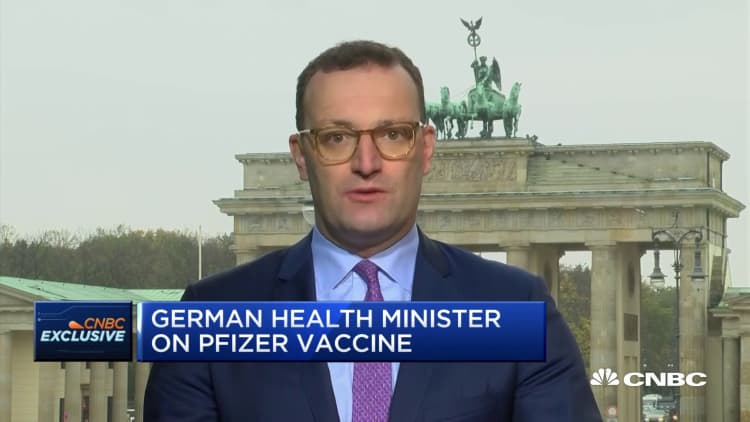Stocks are fighting for a third-day rally. The Dow Jones Industrial Average gained more than 1,000 points in the last two days after Pfizer and BioNTech announced encouraging Covid vaccine effectiveness data. The rotation out of stay-at-home stocks suggests investors are hanging lofty hopes on the vaccine, even as the U.S. enters a dangerous few months of rising cases and colder temperatures.
Here are the biggest developments Wednesday:
The following data was compiled by Johns Hopkins University:
- Global cases: More than 51.92 million
- Global deaths: At least 1.28 million
- U.S. cases: More than 10.36 million
- U.S. deaths: At least 240,782


